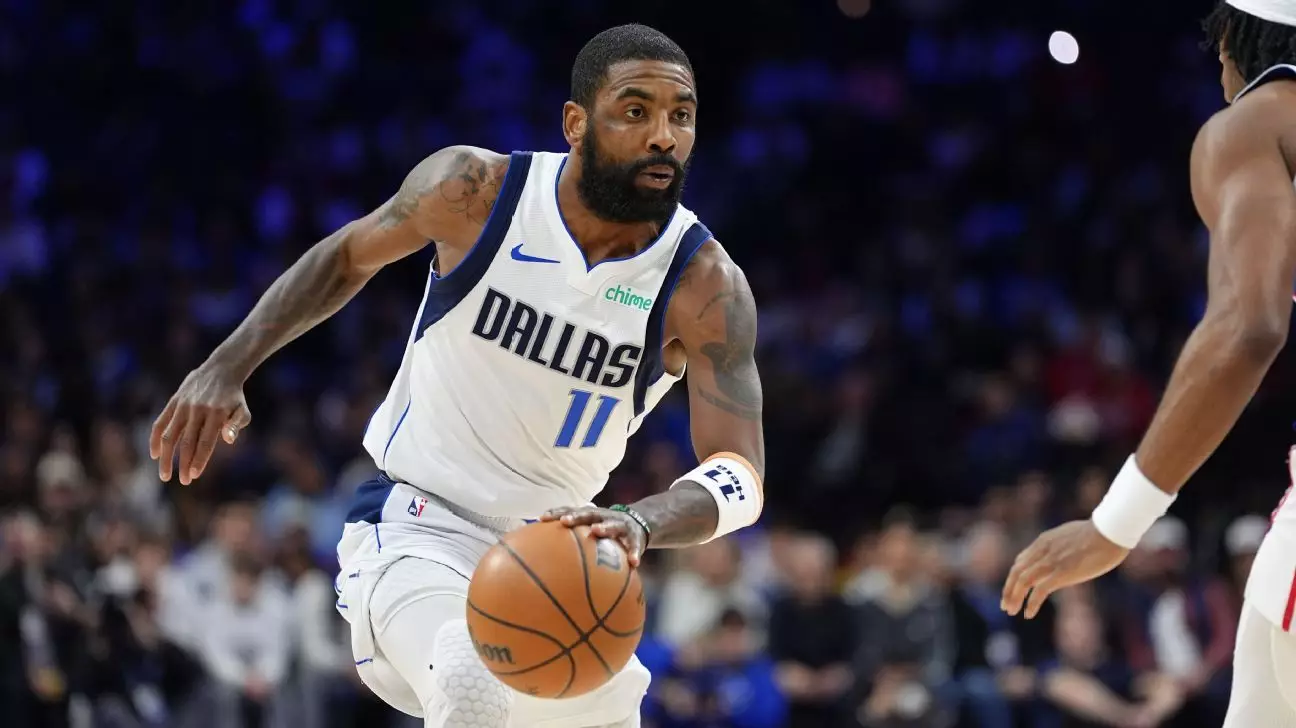In a surprising revelation during the intensity of All-Star Weekend, Dallas Mavericks superstar Kyrie Irving expressed an aspiration that could shake the foundations of international basketball. Born in Melbourne, Australia, Irving has announced his desire to represent the Australian national basketball team, colloquially known as the Boomers, at the upcoming 2028 Los Angeles Olympics. This development not only highlights Irving’s dual citizenship but also raises questions about the implications of such a transition for both his career and national basketball dynamics.
Irving, who achieved the pinnacle of Olympic success as part of Team USA, played a critical role in securing the gold medal at the 2016 Rio de Janeiro Games. His electrifying performances solidified his reputation as one of the premier talents in basketball. However, his absence from subsequent Olympic rosters, including the gold-winning team in Paris last year, has been notable. This gap may have spurred Irving’s reflection on his international allegiance and the potential for new opportunities with the Boomers, who have experienced their share of triumphs and disappointments on the Olympic stage.
Asia has become a hotbed for basketball competition, with nations like Australia making significant strides in elevating their program. The Boomers showcased their prowess by winning a bronze medal at the 2020 Tokyo Olympics. However, their sixth-place finish at the 2024 Paris Games after a hard-fought battle against Serbia illustrates the challenges they face in the quest for Olympic gold. Irving’s presence could potentially be a game-changer, offering experience and skill needed to elevate the team’s competitiveness further.
Transitioning to play for another national team is far from straightforward. Kyrie Irving’s ambition to don the Australian national jersey depends on navigating a complex web of regulations. He must secure approvals from USA Basketball, FIBA, and Basketball Australia before he can officially represent the Boomers. Acknowledging these hurdles, Irving remarked, “We’re in the process of that right now…there’s a lot of paperwork in between that.” Such administrative challenges underline the rigorous nature of international sporting commitments and the importance of national identity in professional athletics.
Irving’s strategy may also implicitly challenge Team USA’s dominance and shift the landscape of international basketball. With towering figures like Irving contemplating their national affiliations, the question arises: how will the USA program respond? While Irving emphasizes his personal desires for growth and contribution, the implications of his potential switch could ripple through Team USA’s roster decisions and strategy ahead of the Olympics. His dual passion for basketball and cultural heritage encapsulates a broader narrative that is emblematic of globalization in sports—athletes increasingly feel empowered to explore their roots and represent the countries they feel most connected to.
As the countdown to the 2028 Los Angeles Olympics begins, all eyes will undoubtedly be on Kyrie Irving and his decision-making process regarding national representation. Whether or not he successfully transitions to Team Australia, Irving’s aspirations reflect both personal motivation and the evolving nature of national loyalty in the world of sports. Ultimately, his journey could redefine not only his career but the future landscape of international basketball.

